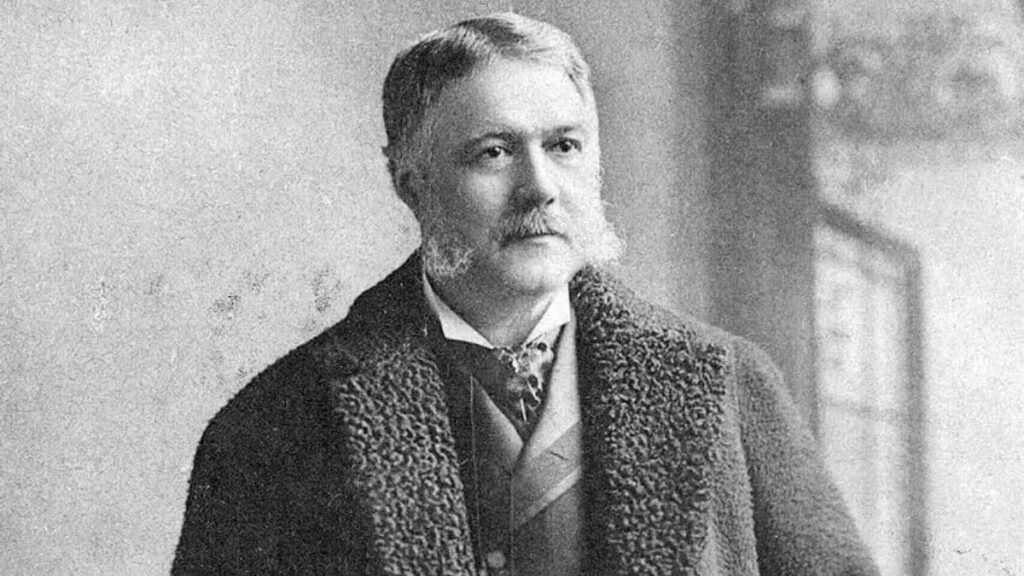Editor’s Note: This is part of
a series of profiles taking a closer look at US presidents ahead of the 2024 presidential election between Donald Trump and Kamala Harris.
Chester A Arthur became president upon the assassination of James Garfield. He came into office in tragic circumstances and was burdened by low expectations. But he left an extremely well-respected figure.
So much so that American icon Mark Twain remarked “it would be hard to better President Arthur’s administration.”
Let’s take a look at the life and legacy of the 21st President of the United States.
Early years
Arthur was born on October 5, 1830, in Vermont’s Fairfield. His parents were Malvina and William Arthur.
William was a reverend and an ardent abolitionist. William and Malvina moved from church to church – first in Vermont and then in New York.
Arthur was taught to read and write at home before being sent to school in Union Village. He attended Union College in New York – studying law as well as teaching. In 1854, he passed the bar exam and joined a prestigious law firm.
He gained fame as a lawyer for two cases. The first was when his law firm took on the case of a group of slaves who had been brought to New York by their master. It successfully argued for the slaves to be set free. He handled much of the details of the appeal – which was later upheld.
He also argued for a Black woman suing a New York streetcar company for forcing her to deboard a whites-only car.
He also met Ellen “Nell” Lewis Herndon, the cousin of a friend, whom he married on October 25, 1859.
When the Civil War broke out, Arthur joined the state militia. He was appointed Quartermaster General – a job he would do exceedingly well thus burnishing his reputation further.
Arthur retired from the militia two years before the war ended and resumed his law practice. By the time the conflict ended, he was a rich man.
Politics
By now, Arthur had begun working with Senator Roscoe Conkling, the Republican boss of New York known for his patronage and power.
Conkling got Arthur appointed to the post of New York customs collector in 1871. It was an important position that paid handsomely – $10,000 for a single year’s salary when the average worker would earn a fraction of that.
Chester A. Arthur rides in his elegant carriage while vacationing at Newport, Rhode Island, in 1884. Image courtesy: whitehousehistory.org
In his role as New York customs collector, Arthur oversaw over 1,000 employees that handled around 75 per cent of the US’ import duties. The New York custom house was famous for being staffed by those loyal to Conkling as part of his patronage system.
Though there is no evidence that Arthur engaged in any personal corruption, he did continue to keep those loyal to Conkling on the payroll as well as collected kickbacks for Conkling’s powerful Republican machine.
His time as a customs collector came to an end in 1878.
Then president Rutherford B Hayes, who succeeded Grant in 1877, was in a struggle with Conkling. Intent on cutting Conkling’s empire down to size, He formed a special commission to investigate the New York customs house. The commission found political patronage and kickbacks run amuck.
Though Arthur and Conkling put up a fight in the Senate, Hayes managed to suspend Arthur from his post in July 1878.
Plotting their revenge, Arthur and Conkling tried to secure the Republican nomination for Grant at the 1880 convention. But when that ploy failed, they accepted Arthur’s nomination as running mate to James A Garfield as a compromise to the warring factions in the Republican Party.
Time in office
On March 4, 1881, Garfield was sworn in as president and Arthur as his deputy. But then in July, just two months later, Garfield was struck by an assassin’s bullet.
Justice John R. Brady, Justice of New York State Supreme Court, administering the oath of office to Chester Alan Arthur at a private ceremony. Image courtesy: loc.gov
Garfield survived the shooting but would die a few months later in September. Arthur as president surprised many by vetoing an $18 million rivers and harbours bill that could have been used to dole out political patronage. He also threw his weight behind the Pendleton Civil Service Act (1883) which made merit a prerequisite when it comes to being appointed and promoted in civil service jobs.
He also managed to acquire America a base in Pearl Harbour in the Hawaiian Islands.
Arthur signed the Chinese Exclusion Act – which barred Chinese immigrants from coming to America for 10 years.
Arthur in 1884 ran for the nomination of his party again, but lost out to James G Blane. Few knew how sick he was at the time – and how little time he had to live. Arthur finished out his one-term presidency, returned to New York and passed away in 1886.
Legacy
Historically, Arthur has been an underappreciated president.
Chester A. Arthur died in 1886. Image courtesy: whitehouse.gov
He bucked his own party on important matters and in the aftermath of the Civil War, provided a steady and competent hand.
“No man ever entered the Presidency so profoundly and widely distrusted, and no one ever retired … more generally respected,” publisher Alexander K McClure said.
Source link : http://www.bing.com/news/apiclick.aspx?ref=FexRss&aid=&tid=670837ca4dbb4366b1c0fdbc7c1e4528&url=https%3A%2F%2Fwww.firstpost.com%2Fworld%2Funited-states%2Fpresidents-of-the-united-states-chester-a-arthur-the-president-who-barred-chinese-labourers-from-america-13824080.html&c=17327475931334353505&mkt=en-us
Author :
Publish date : 2024-10-10 06:30:00
Copyright for syndicated content belongs to the linked Source.
